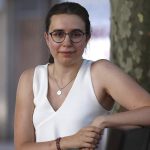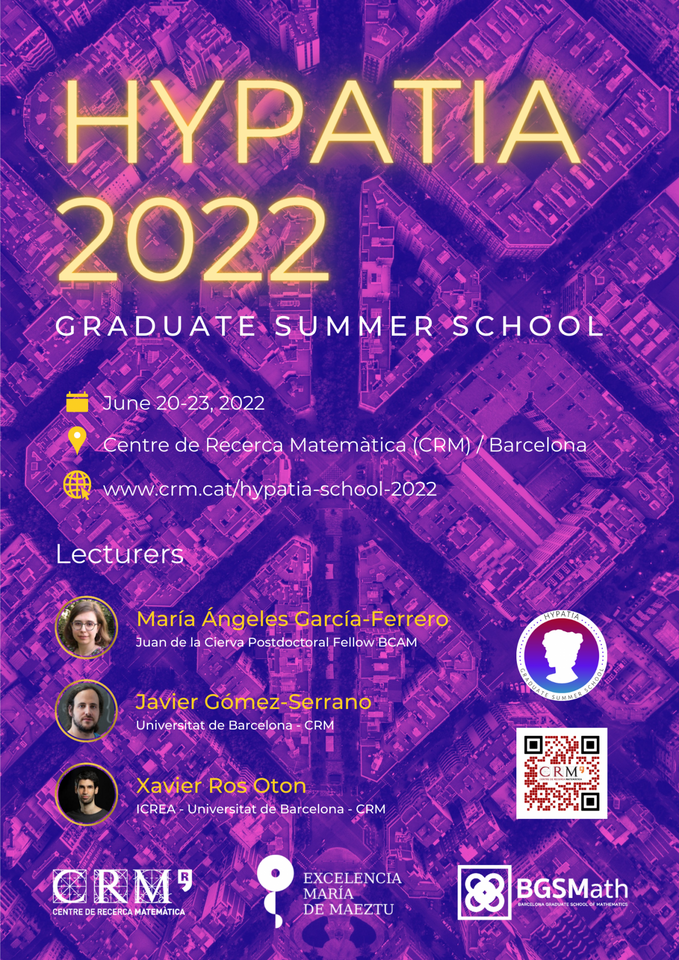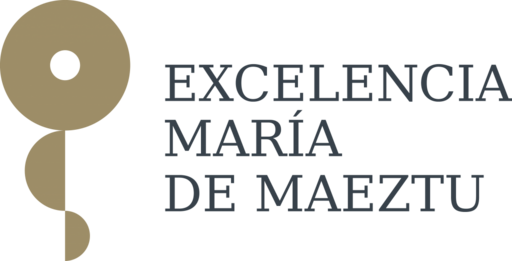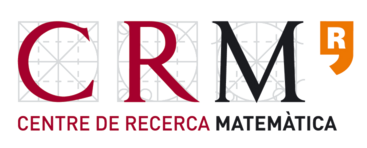Hypatia Graduate Summer School 2022
Sign into June 23, 2022
SCHEDULE
PHOTO GALLERY
Declaration of intent

This summer school series aims at training their participants in key strategic problems in mathematics and their applications, with the core idea that theory and applications strengthen each other. The school is focused in training of young researchers whilst opening new fields for senior ones.
The Hypatia Graduate Summer School will consist in two keynote courses on subjects of exceptional promise and scientific importance delivered by highly distinguished speakers in the area plus a high-level colloquium on a complementary subject.
The Hypatia Graduate Summer School will be developed in an informal atmosphere based on discussions, exchange of ideas and critical analysis of results. Moreover, to honour its namesake, it is committed to work under a friendly gender perspective that highlights the role of women in mathematics and encourages and helps the participation and promotion of young female researchers at a professional level.
Lecturers

María Ángeles García-Ferrero
Juan de la Cierva Postdoctoral Fellow - Basque Center for Applied Mathematics
María Ángeles is a Juan de la Cierva postdoctoral fellow at the Basque Center for Applied Mathematics (BCAM) in Bilbao (Spain). Before that, she spent three years in Germany as a postdoctoral researcher, first at the Max-Planck-Institut für Mathematik in den Naturwissenschaften in Leipzig and afterwards, at the Institut für Angewandte Mathematik at the Universität Heidelberg, in the Analysis and Partial Differential Equations group led by Angkana Rüland. She is a member of Luis Vega‘s group in Linear and Non-Linear Waves and of the Bilbao Analysis and PDE group. Her research interests include (local and nonlocal) partial differential equations, inverse problems, geometric analysis, fluid mechanics and mathematical physics. She has received several awards for young mathematicians in Spain and has won different prizes in national and international Mathematic Olympiads.

Javier Gómez-Serrano
Universitat de Barcelona - Brown University - CRM
Javier is a visiting Professor at Brown University and a Distinguished Researcher at University of Barcelona. Before that, he was an Instructor and an Assistant Professor at Princeton. His research interests are on the boundary between analysis, partial differential equations, fluid mechanics, spectral geometry, numerical computation and rigorous computer-assisted proofs. He is the PI of an ERC Starting Grant (2020-2025), has received several awards for young mathematicians in Spain and has won different prizes in national and international Mathematic Olympiads.

Xavier Ros Oton
ICREA - Universitat de Barcelona - CRM
Xavier is ICREA Research Professor and Catedràtic d’Universitat at UB since 2020. Previously, he has been Assistant Professor at Universität Zürich, as well as R. H. Bing Instructor at the University of Texas at Austin. He is a mathematician who works on Partial Differential Equations (PDE). Specifically, he studies the regularity of solutions to elliptic and parabolic PDE, and he is mostly known for his results on free boundary problems and integro-differential equations. He is the PI of an ERC Starting Grant (2019-2024), has received several awards for young mathematicians in Spain, as well as the Scientific Research Award from the Fundación Princesa de Girona in 2019. Furthermore, in 2021 he was awarded the Stampacchia Gold Medal, an international prize awarded every three years in recognition of outstanding contributions to the Calculus of Variations.
Personal webpage: https://www.ub.edu/pde/xros
COURSES
COURSE: The Calderón inverse problem
Lecturer: M. Ángeles García-Ferrero (BCAM)
Abstract:
The Calderón problem is a prototypical inverse problem on which medical and geological imaging techniques are based. Roughly speaking, the aim is the determination the conductivity of a medium by measurements of voltages and currents on its boundary. The problem can be mathematically formulated as the determination of an unknown potential in a Schrödinger equation from the knowledge of the so-called Dirichlet-to-Neumann map.
In this course, we will address the questions of uniqueness and stability for the classical Calderón problem. We will also introduce the Calderón problem associated to other operators.
cOURSE: Free boundary problems in fluid mechanics
Lecturer: Javier Gómez-Serrano (UB-Brown-CRM)
Abstract:
There are many settings in fluid mechanics modeled by a free boundary. These contour dynamics problems are given by basic fluid mechanics systems, such as the Euler equation, Darcy´s law and the Quasi-geostrophic equation and many interesting problems arise. For example the water wave problem, the Muskat problem, the one and two-phase Hele-Shaw problem or the evolution of sharp fronts. However, many of these are not or partially understood and in particular the global existence vs finite time singularity formation question presents a big challenge. In this lectures I will address some of the recent advances that have happened lately.
COURSE: Regularity of free boundaries in the Stefan problem
Lecturer: Xavier Ros-Oton (ICREA-UB-CRM)
Abstract:
Free boundary problems (FBP) are those described by PDE that exhibit a priori unknown (free) interfaces or boundaries. Such type of problems appear in Physics, Geometry, Probability, Biology or Finance, and the study of solutions and free boundaries uses methods from PDE, Calculus of Variations, and Geometric Measure Theory.
The Stefan problem, which describes the melting of ice, is one of the most classical and motivating FBP. The aim of this course is to give an overview of the main known regularity results for free boundaries in this setting, and present some recent results concerning the set of singular points.
HYPATIA COLLOQUIUM
Singularities and nonuniqueness in fluids: the good, the bad and the ugly
21 June, 2022
16:00 – 17:00
Watch it live from A1, Centre de Recerca Matemàtica or online via Zoom

Tristan Buckmaster
Princeton University and Institute of Advanced Study
My main area of interest are Partial Differential Equations with a particular focus on equations related to fluid dynamics. I was a recipient of a 2019 Clay Research Award. My research is supported by the National Science Foundation grant DMS-1900149 ‘Analytic Methods in Hydrodynamic and Wave Turbulence’, the Simons Foundation Mathematical and Physical Sciences collaborative grant ‘Wave Turbulence’ and a grant from the Insitute for Advanced Study. Quanta Magazine wrote a popular science article on a recent paper I wrote in collaboration with Vlad Vicol entitled ‘Mathematicians Find Wrinkle in Famed Fluid Equations’.
Abstract: In this talk, I will provide an overview of a broad spectrum of results related to both compressible and incompressible fluid flow. In the context of compressible flow, I will cover results related to shock waves and implosion. In the context of incompressible flow, I will survey results related to anomalous dissipation and non-uniqueness. I will attempt to tie all these results to fundamental problems in the field of mathematical fluid dynamics.
If you wish to attend the HYPATIA Colloquium please confirm your attendance by filling out the following form:
HYPATIA COLLOQUIUM
list of participants
| Name | Institution |
|---|---|
| Margaux Introna | University of Turin |
| Iñigo Urtiaga Erneta | Rutgers |
| Ignasi Guillén-Mola | Universitat Autònoma de Barcelona |
| Joaquim Duran i Lamiel | Centre de Recerca Matemàtica |
| Clara Torres Latorre | Universitat de Barcelona |
| Dan Paraschiv | Universitat de Barcelona |
| Àlex Pujol Vidal | Universitat de Barcelona |
| Danijela Milenkovic | University of Novi Sad |
| Eduard Roure Perdices | Universitat de Barcelona |
| Josep M Gallegos | Universitat Autònoma de Barcelona |
| Marvin Weidner | Bielefeld University |
| Renzo Bruera | Universitat Politècnica de Catalunya |
| Irene Gonzálvez Martínez | Universidad Autónoma de Madrid |
| Carl Johansson | Swiss Federal Institute of Technology in Lausanne |
| Ahmad Khan | Universitat Politècnica de Catalunya |
| Pablo Hidalgo Palencia | ICMAT |
| Anna Jové Campabadal | Universitat de Barcelona |
| Joaquín Domínguez de Tena | ICMAT |
| David Rosado | Universitat de Barcelona |
| Kristina Oganesyan | Universitat Autònoma de Barcelona |
| Marcos Solera Diana | Universitat de València |
| Pedro Porras Flores | National Autonomous University of Mexico |
| Miquel Saucedo | Centre de Recerca Matemàtica |
| Joan Domingo Pasarin | Universitat de Barcelona |
| Robert Florido Llinàs | Universitat de Barcelona |
| Rafael Martínez Vergara | Universitat de Barcelona |
| Juan Carlos Cantero Guardeño | Universitat de Barcelona |
| Mikel Ispizua | Universidad Autónoma de Madrid |
| Claudia Garcia | Universitat de Barcelona |
Registration
REGISTRATION FEE IN-PERSON ATTENDANCE: 200€
REGISTRATION FEE ONLINE ATTENDANCE: 25€
REGISTRATION DEADLINE: 10/06/2022
*Registration includes: coffee breaks and reception.
Registration and Accommodation Grants
| Application deadline for grants is 15/05/2022 |
| Resolutions will be sent by 24/05/2022 |
INVOICE/PAYMENT INFORMATION
IF YOUR INSTITUTION COVERS YOUR REGISTRATION FEE: Please note that, in case your institution is paying for the registration via bank transfer, you will have to indicate your institution details and choose “Transfer” as the payment method at the end of the process.
UPF | UB | UPC | UAB
*If the paying institution is the UPF / UB/ UPC / UAB, after registering, please send an email to vramirez@crm.cat with your name and the institution internal reference number that we will need to issue the electronic invoice. Please, send us the Project code covering the registration if needed.
Paying by credit card
IF YOU PAY VIA CREDIT CARD but you need to provide the invoice to your institution to be reimbursed, please note that we will also need you to send an email to vramirez@crm.cat providing the internal reference number given by your institution and the code of the Project covering the registration (if necessary).
Lodging information
ON-CAMPUS AND BELLATERRA
BARCELONA AND OFF-CAMPUS
Acknowledgements
FUTURE HYPATIA EDITIONS
HYPATIA 2023
|
For inquiries about this event please contact the research programs coordinator Ms. Núria Hernández at nhernandez@crm.cat
|





